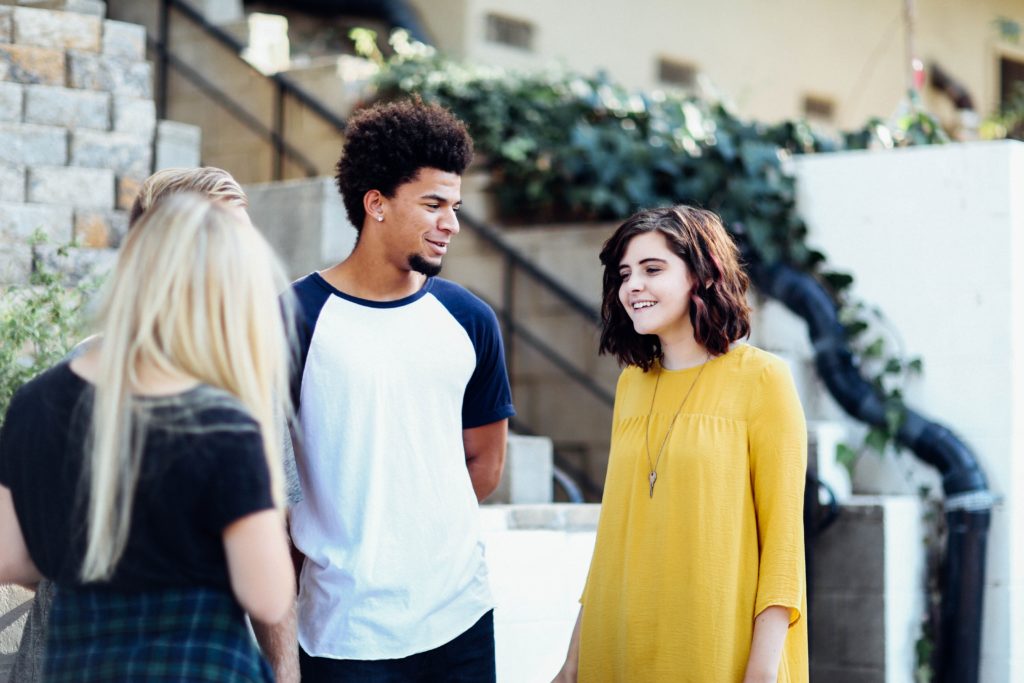 13 Reasons Why Can Start Valuable Conversations with Kids
13 Reasons Why Can Start Valuable Conversations with Kids
by Dr. Bill Clark
The past few weeks we have been walking through a series entitled, Reasons to Engage, focused on the popular Netflix series, 13 Reasons Why. In this series we are looking at what value you can draw from the show, and ultimately addressing the question, “should we engage in the conversation around 13 Reasons Why, teen suicide, and some of the dark topics that is addresses?”
The show, 13 Reasons Why, provides a natural but difficult opportunity to enter into the world of kids, especially your own. But we cannot engage until we’ve earned the right to ask questions or invite a discussion by watching the show with an open mind.
We cannot engage until we’ve earned the right to ask questions or invite a discussion by watching the show with an open mind.
Obviously, many kids will deny watching, downplay any significant impact from watching it, or resist opening up. But we must try to engage, and if we try, we should be genuinely provocative and nonreactive.
Reason #3 to Engage: The show provides an organic means to have conversations with kids and other parents, educators, mentors, etc. about important topics.
One of the producers said, “We’re storytellers. And our job, probably more than anything, is to entertain. But you get a piece of material like this [from the book, 13 Reasons Why] that’s actually about something and, you know, you take that seriously, and you really hope the discussion begins and will continue.”
What follows are some initial ideas for how to begin conversations with your kids and “use” this show. Ideally you might watch it with them and process afterwards. Campus ministers, Young Life leaders, youth leaders, counselors, etc. would also benefit from watching the show. They may develop additional ideas for how to bring kids together to facilitate the processing of the show’s themes.
Conversation-Starter Questions to Engage Kids
Many parents, coaches, teachers, and counselors have told me that they have a hard time getting kids to open up. Sometimes having a few starting points may help you ease into the conversation more organically.
Here are some questions I might ask my kids or kids that I work with:
- What did the show make you think or feel? How accurately do you think it portrayed adolescent culture? What do you think the director of the show wants you to understand?
- What did you think about Hannah? Why do you think all of this happened to her? If she were your friend, how would you have responded? What did you find yourself wishing would happen? Why do you think that “better ending” didn’t happen?
- Why do you think none of the adults got more involved or knew what was happening? Do you sense the adults in your life might not get it either? What would you want adults to learn from the show?
- Which characters did you understand or empathize with, even if they hurt Hannah? Which ones were harder to understand or care about? Why? Who was the hardest for you? Do any of the characters represent what you think is “evil”? Do you think “evil” exists in your school?
- You know kids commit suicide; it’s now the second leading cause of death (behind accidents) for teens. Sometimes you can tell when a kid is hopeless, depressed or angry, sometimes you can’t. Why do you think Hannah ended her life? Was she hopeless? Angry? Depressed? Ashamed? Vengeful? A combination of all the above? What’s your best guess?
- The Bible loosely puts people in 4 categories; evil, foolish, simple, and wise. How would you categorize the key characters in this show? Why?
- Suppose one of the kids in the show was a believer in Christ; what difference might that have made, if any?
Multiple-Choice Conversation Starters
If your kids aren’t “talkers,” consider the following multiple choice questions to begin the conversation:
- Who did you care about most in the show?
- Clay
- Hannah
- Hannah’s parents
- Tony
- _____________
- Hannah took her life because she was:
- Depressed and defeated
- Angry
- Hurt and ashamed
- Sacrificial
- Alone
- Selfish
- ___________________
- The main point of the book and show seems to be:
- Treat people better
- People are cruel and selfish and we must carefully choose whom to trust
- If you care about someone, let them know
- Don’t commit suicide
- Expose people’s selfishness and stupidity regardless of cost
- _____________________
- The show is:
- Realistic
- Hard to believe, but well done
- Are you kidding?
- Disturbing and upsetting
- Weird and unrealistic
- Preachy, moralistic, heavy
- ____________________________
- I wish…
- They hadn’t shown the rape scenes
- Hannah hadn’t really killed herself
- They wouldn’t make a second series
- It wasn’t so hopeless—you knew the ending was bad and it was
- People couldn’t get away with stuff
- _____________________
- What made me mad or upset was:
- She didn’t find a better way to tell people what was happening instead of making everyone feel so guilty
- Tyler and his stupid guns
- Bryce and people like him
- The grown-ups in the show
- Clay had so many chances to help her and he didn’t
- The selfishness of so many kids
- _________________________________
Summary
The show portrays brokenness well. It exposes the lack of deep emotional, ethical and relational guidelines in our world today—and what that might lead to in someone’s mind or heart. This can set up a realistic conversation comparing the world’s “truth,” and the life and message of Christ. It also naturally prompts the obvious question, “What would Jesus (have us) do?” in situations like these?
Download the Conversation-Starters in a PDF
Please leave any questions you have or comments below.
